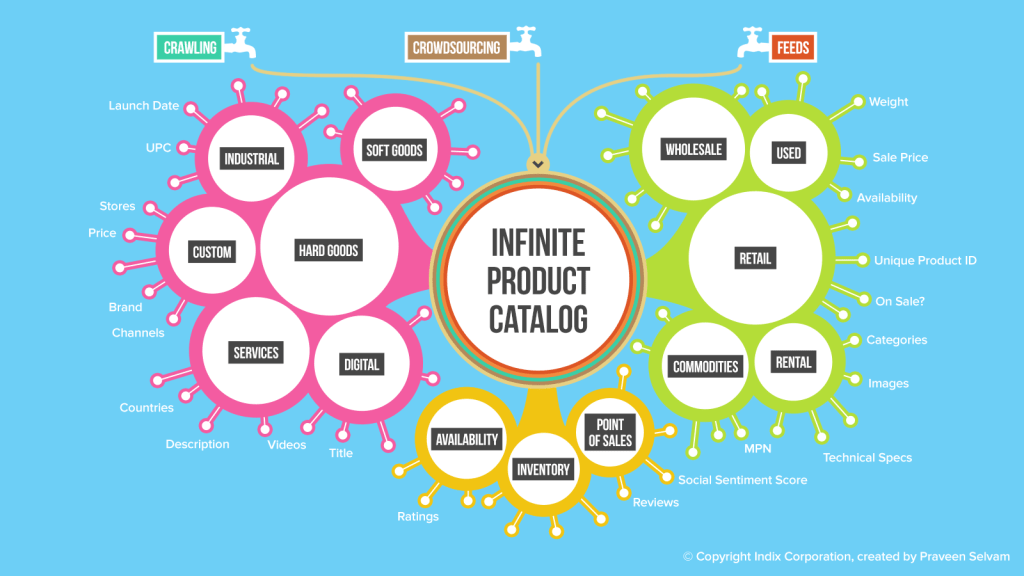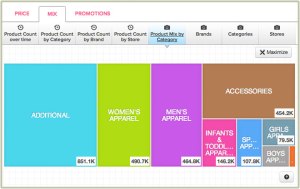
Indix, a big data startup based in Chennai, is building a catalog for all of the world’s over 1 billion consumer products to help brands compare prices and make crucial business decisions. Indix is positioning itself as a neutral aggregator of all the world’s e-commerce inventory, and hundreds of millions of products that can be otherwise searched on Google, but without any personalized insights.
Founded by veteran Microsoft executive Sanjay Parthasarathy in 2012, Indix has already created a database of around 200 million products in the cloud. In two years, the startup plans to scale it to over 1 billion listings. Since going live with the platform in October last year, Indix has signed up some high profile customers including Microsoft, which is using the product to get real-time price and channel intelligence for its online store.
The startup raised around $6 million in Series A funding last year from Nexus Venture Partners and Avalon Ventures. Prior to that, Indix had raised angel funding from several investors including Kosmix co-founder Venky Harinarayan, S Somasegar (a corporate VP at Microsoft) and Anand Rajaraman who heads @WalmartLabs.
Indix is riding a new wave of Internet commerce where retailers such as Nordstrom are beginning to look beyond Amazon and Google for capturing insights about their own and rivals’ products. For instance, Nordstrom started tagging its “most pinned” products across its stores in a pilot that could shape the way retailers leverage platforms such as Pinterest.
According to Parthasarathy, while Amazon is limited to the products it has in its own catalog and its marketplace while Google is limited by the way it employs its search algorithms. As he wrote in this Wired post recently, brands and retailers are moving beyond the traditional e-commerce model underscoring the need to have an infinite catalog in the cloud.
“We now have coverage (breadth) of all of consumer retail (except for autos, and we don’t focus on books, music and videos) plus several B2B categories. We also have product 10,000 attributes (i.e. depth) across all of the products in the system, and over 100 pre-computed insights (i.e. algorithms),” he said.
Indix is only meant for brands and retailers, and has not been opened for consumers to buy products directly online. From what the founder told me, it will remain this way for the near term.

For instance, if a Nike wants to know which of its products are doing well, identify the ones that are not selling, and compare sales performance across product lines with rivals, it cannot rely on its internal analytics alone. This is because these companies’ internal enterprise systems only capture what is fed into the software and their products are increasingly gaining visibility on platforms that are beyond traditional channels (see the Pinterest-Nordstrom example above).
On top of its product database, Indix offers customized app and API for retailers to tap into the platform and gain real-time insights based on their preferences. The Indix app is no way meant to replace a customer’s existing enterprise applications that offer analytics, but it presents another version (which is much bigger and deeper in scale) of the marketplace.
“Our view on all apps and websites becoming ‘product aware’ in an era of pervasive commerce has also forced us to think differently about system architecture and scale, quality and velocity of the data,” said Parthasarathy.



